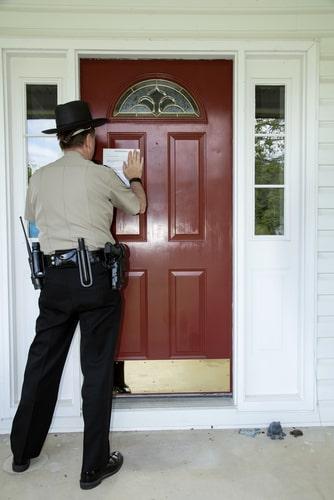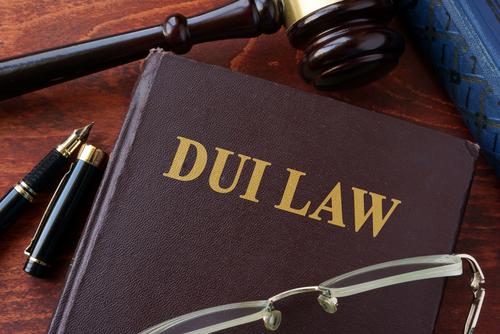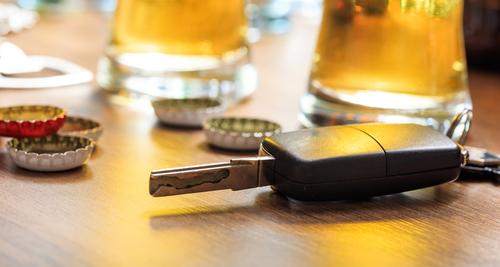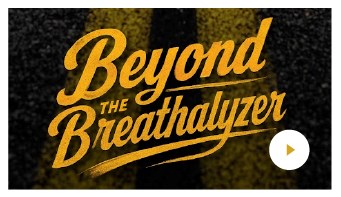Recent Blog Posts
Supreme Court Rules Against Warrantless Entry in Pursuit of Misdemeanor Suspect
 In a case that is sure to have a substantial impact on the way police handle misdemeanor encounters with individuals, in Lange v. California the Supreme Court rejected a categorical rule that enabled officers to enter a home without a warrant in “hot pursuit” of a fleeing misdemeanor suspect. In an opinion by Justice Kagan, the Court preserved the sanctity and privacy afforded to the home by ruling that the flight of a suspected misdemeanant itself does not justify warrantless entry into a home and that, barring exigent circumstances (i.e., imminent harms of violence, destruction of evidence, escape from the home), an officer must get a warrant.
In a case that is sure to have a substantial impact on the way police handle misdemeanor encounters with individuals, in Lange v. California the Supreme Court rejected a categorical rule that enabled officers to enter a home without a warrant in “hot pursuit” of a fleeing misdemeanor suspect. In an opinion by Justice Kagan, the Court preserved the sanctity and privacy afforded to the home by ruling that the flight of a suspected misdemeanant itself does not justify warrantless entry into a home and that, barring exigent circumstances (i.e., imminent harms of violence, destruction of evidence, escape from the home), an officer must get a warrant.
The case started with Arthur Lange catching the attention of a California highway patrol officer by listening to loud music and repeatedly honking his horn as he drove his car. The officer tailed Lange and tried to conduct a traffic stop. Being just a few seconds away from home, Lange continued to his driveway and parked his car in the garage. The officer followed him in and prevented the garage door from closing by sticking his foot under it. Upon talking to Lange, the officer noticed signs of intoxication and put him through field sobriety tests, where he was eventually arrested for DUI.
Drinking on the Job: How a DUI Can Impact a Commercial Driver
 When it comes to driving under the influence of drugs or alcohol, Arizona law holds truck drivers and other Commercial Driver’s License holders to a higher standard than regular drivers —even when they are off-duty.
When it comes to driving under the influence of drugs or alcohol, Arizona law holds truck drivers and other Commercial Driver’s License holders to a higher standard than regular drivers —even when they are off-duty.
When CDL drivers are behind the wheel of their commercial vehicles they can be arrested and charged with a DUI if they have a Blood Alcohol Concentration of .04 percent or higher, which is half the regular legal alcohol limit.
If the CDL driver is behind the wheel of a non-commercial vehicle, such as their personal car, then the regular .08 legal alcohol limit applies. However, a DUI charge can put a commercial driver’s employment at serious risk. Regular drivers facing a DUI can lose their license for 90 days (if they consent to a blood test), while commercial drivers can lose their license for up to a year. Additionally, if your regular driver’s license is suspended, then your commercial driver’s license is also suspended until the agency that revoked it restores it. This can cause CDL holders to lose the ability to work.
SCOTUS Takes on Fourth Amendment Case via the Police’s “Community Caretaking” Exception
 The Fourth Amendment provides protection against unreasonable search and seizure, with subsequent court rulings declaring any warrantless search is unreasonable. Courts have established a handful of exceptions to the warrant requirement. Some of these exceptions allow police to enter private property if there is a compelling and immediate reason why they would need to intervene, and do not have time to obtain a search warrant from a judge. If police observe a murder about to happen inside a private home or business, for example, they would be allowed to respond immediately under this rule.
The Fourth Amendment provides protection against unreasonable search and seizure, with subsequent court rulings declaring any warrantless search is unreasonable. Courts have established a handful of exceptions to the warrant requirement. Some of these exceptions allow police to enter private property if there is a compelling and immediate reason why they would need to intervene, and do not have time to obtain a search warrant from a judge. If police observe a murder about to happen inside a private home or business, for example, they would be allowed to respond immediately under this rule.
The “community caretaking” exception to the Fourth Amendment is unique from other exceptions because it does not require an immediate, urgent reason for police intervention. The U.S. Supreme Court ruled in Cady v. Dombrowski (1973) that police were allowed to seize guns out of an impounded vehicle without a warrant based on a police claim that the guns were being removed to prevent them from being stolen. The court ruled that police should be able to perform duties that take care of the community, provided their actions are “totally divorced” from the investigation of a crime.
The Future of Marijuana DUI Is Up In Smoke: A New Frontier In Arizona’s Age of Legal Recreational Marijuana
 Arizona voters made history this November when they approved legalizing recreational marijuana. Beginning November 30, 2020, adults 21 years or older can legally possess up to an ounce of marijuana, with no more than five grams in a concentrated form, and can grow up to six marijuana plants at home, as long as the plants are within a lockable enclosed area and out of public view.
Arizona voters made history this November when they approved legalizing recreational marijuana. Beginning November 30, 2020, adults 21 years or older can legally possess up to an ounce of marijuana, with no more than five grams in a concentrated form, and can grow up to six marijuana plants at home, as long as the plants are within a lockable enclosed area and out of public view.
This ballot initiative, called Proposition 207, will give the Arizona Department of Health Services (AZDHS) responsibility for regulating marijuana retail stores and cultivation facilities. According to Ballotpedia, the passage of Prop. 207 also allows Arizonans who have been convicted of certain marijuana-related crimes such as possession, consumption, cultivation, and transportation to petition for the expungement of their criminal record beginning July 12, 2021.
COVID-19 Threatens the Right to a Fair Trial
 When accused of a crime, everyone deserves a fair trial in court. That truth is embedded in the Constitution under the Sixth Amendment. But the COVID-19 pandemic has threatened the integrity of those trials, leaving defendants at risk. With jury trials slowly beginning again in Pima County, it’s important to understand the ways COVID-19 can impact your right to due process.
When accused of a crime, everyone deserves a fair trial in court. That truth is embedded in the Constitution under the Sixth Amendment. But the COVID-19 pandemic has threatened the integrity of those trials, leaving defendants at risk. With jury trials slowly beginning again in Pima County, it’s important to understand the ways COVID-19 can impact your right to due process.
The widespread use of face masks has emerged as one of the most effective ways to stop the spread of coronavirus, though it can have a troubling impact in trial proceedings. Each state has its own policy on wearing face masks in courthouses, and Arizona’s is relatively lenient. The Arizona Supreme Court mandated face masks for court employees, visitors and participants, but a judicial officer can let a testifying witness remove or pull down their mask while testifying—if it’s deemed necessary and appropriate physical distancing measures are followed.
Can Police Enter Your Home In Pursuit Of A Misdemeanor Crime? The Supreme Court Will Decide
 California resident Arthur Lange was driving home one day in 2016 when he caught the attention of a California highway patrol officer, who pursued him with the intention of giving a citation for playing music loudly and honking his car horn.
California resident Arthur Lange was driving home one day in 2016 when he caught the attention of a California highway patrol officer, who pursued him with the intention of giving a citation for playing music loudly and honking his car horn.
Instead of conducting a regular traffic stop, the officer followed Lange to his home where Lange parked his car in the garage and headed for the door. Without getting a search warrant or consent to enter the residence, the officer entered Lange’s garage by putting his foot under the garage door to block it from closing.
Upon talking to Lange, the officer believed he could smell alcohol on his breath and charged Lange with a DUI. In court, Lange argued that the officer’s entry into his garage without a warrant violated his Fourth Amendment right to be protected against unreasonable searches and seizures. When the police seize evidence illegally, the exclusionary rule usually operates to bar the government from using that evidence at trial
Is There a Time Limit For The Police To Draw My Blood As Evidence?
 In Arizona, officers must draw your blood within two hours of you being pulled over for suspicion of DUI if they wish to use the blood results as evidence against you. That’s because the law says you cannot have a prohibited alcohol concentration within two hours of driving or being in actual physical control of a car. The police are aware of this short window and will try to draw your blood as quickly as they can. However, in some cases, a driver’s blood is not taken until 2 hours after the stop. In fact, it is not unusual for testing to occur outside the 2-hour window.
In Arizona, officers must draw your blood within two hours of you being pulled over for suspicion of DUI if they wish to use the blood results as evidence against you. That’s because the law says you cannot have a prohibited alcohol concentration within two hours of driving or being in actual physical control of a car. The police are aware of this short window and will try to draw your blood as quickly as they can. However, in some cases, a driver’s blood is not taken until 2 hours after the stop. In fact, it is not unusual for testing to occur outside the 2-hour window.
Even if the police miss the two-hour window on drawing your blood, they can still try to use the results as evidence against you by relying on something called retrograde extrapolation. This scientific process determines if you had a BAC of .08 or higher within two hours of driving. Usually, the State will have a chemist testify using the blood result and guess backwards as to what your BAC would have been within two hours of driving.
My License Was Suspended For 1 Year. Can I Still Drive?
 If you refuse to take a chemical test from an officer who suspects you are driving under the influence, your license may be suspended for 1 year. The lawyers at The Behan Law Group will fight to keep your driving privileges in tact. However, even if your license suspension is upheld for one year, there are still ways to be able to get you back on the road.
If you refuse to take a chemical test from an officer who suspects you are driving under the influence, your license may be suspended for 1 year. The lawyers at The Behan Law Group will fight to keep your driving privileges in tact. However, even if your license suspension is upheld for one year, there are still ways to be able to get you back on the road.
Arizona allows drivers facing a one-year suspension to obtain a restricted driving permit, called a Special Ignition Interlock Restricted Driver’s License (SIIRDL) for the last 9 months of the 1 year suspension. This license is separate from an ignition interlock device and is voluntary.
Requirements:
- Your license suspension/revocation occurred on or after February 1, 2006.
- You have completed at least 90 days of the mandated suspension period.
Can I Refuse to Submit to Field Sobriety and Chemical Tests?
 In a state where the penalties for driving under the influence are severe, it is easy to become confused on your rights when being pulled over for a DUI. The Behan Law Group wants you to understand your rights if you are stopped and investigated for a DUI.
In a state where the penalties for driving under the influence are severe, it is easy to become confused on your rights when being pulled over for a DUI. The Behan Law Group wants you to understand your rights if you are stopped and investigated for a DUI.
What is a Field Sobriety Test and a Chemical Test? In Arizona, officers use two different types of tests to check a driver for DUI: field sobriety tests and chemical tests. Field sobriety tests are subjective tests that an officer might ask you to perform on the side of the road, such as the Horizontal Gaze Nystagmus Test, the Walk and Turn Test, the One-Leg Stand Test etc. On the other hand, chemical tests check your blood alcohol concentration (BAC) level by testing your blood, breath, or urine. Breathalyzers, urine samples, and blood draws are all types of chemical tests.
CAN I GET A DUI IF I WAS NOT DRIVING?
 Many drivers in Arizona mistakenly believe that you must physically be driving a car to be charged with a DUI. However, simply sitting in the driver’s seat and smelling like alcohol may be enough to get arrested for DUI.
Many drivers in Arizona mistakenly believe that you must physically be driving a car to be charged with a DUI. However, simply sitting in the driver’s seat and smelling like alcohol may be enough to get arrested for DUI.
Arizona law prohibits driving or being in actual physical control of a car while impaired. While actual physical control is not greatly defined, Arizona courts will often use several factors to determine whether a person had the intent to drive while intoxicated. These factors often include:
- Whether the vehicle was running or whether the ignition was on;
- Where the driver was found, and in what position;
- Where the keys were located;
- The weather conditions and time of day;
- Whether the driver voluntarily pulled over;
- Whether the driver was awake or asleep;





